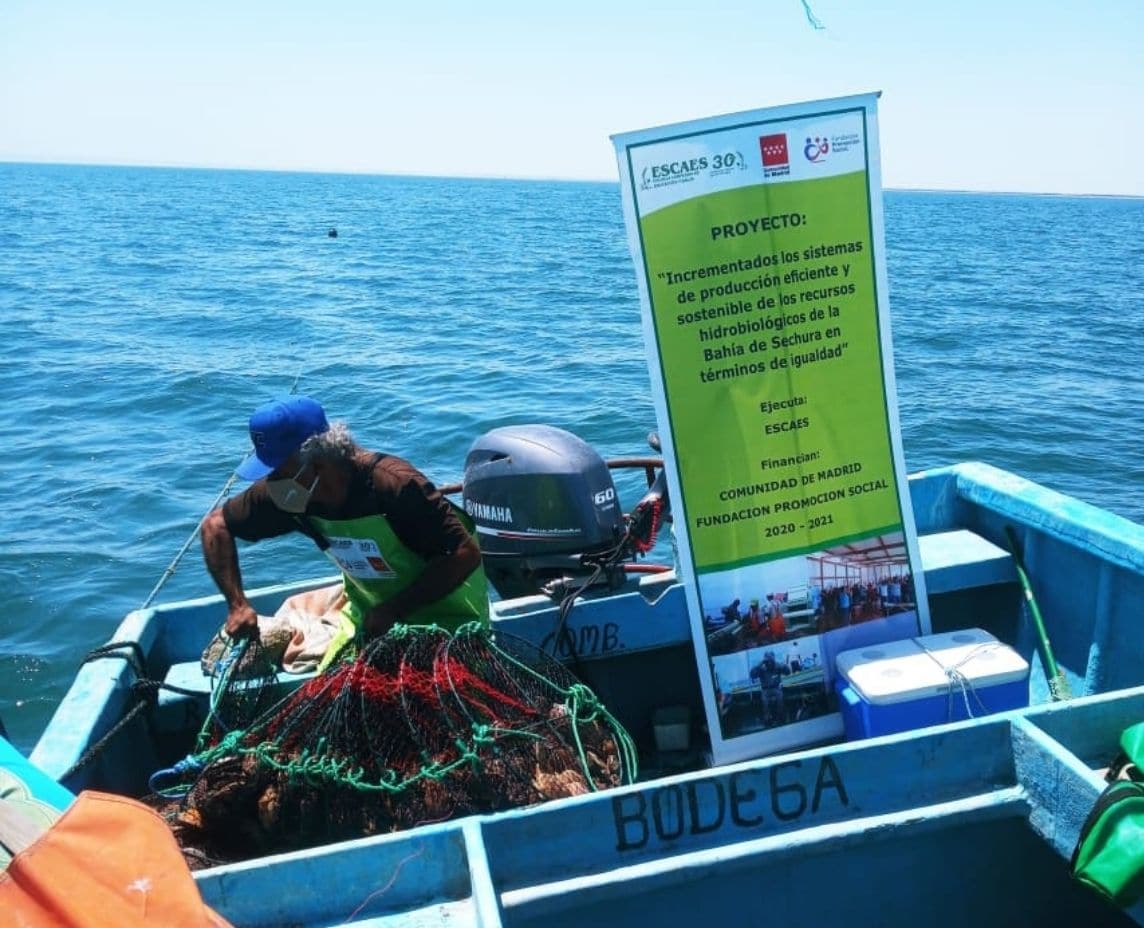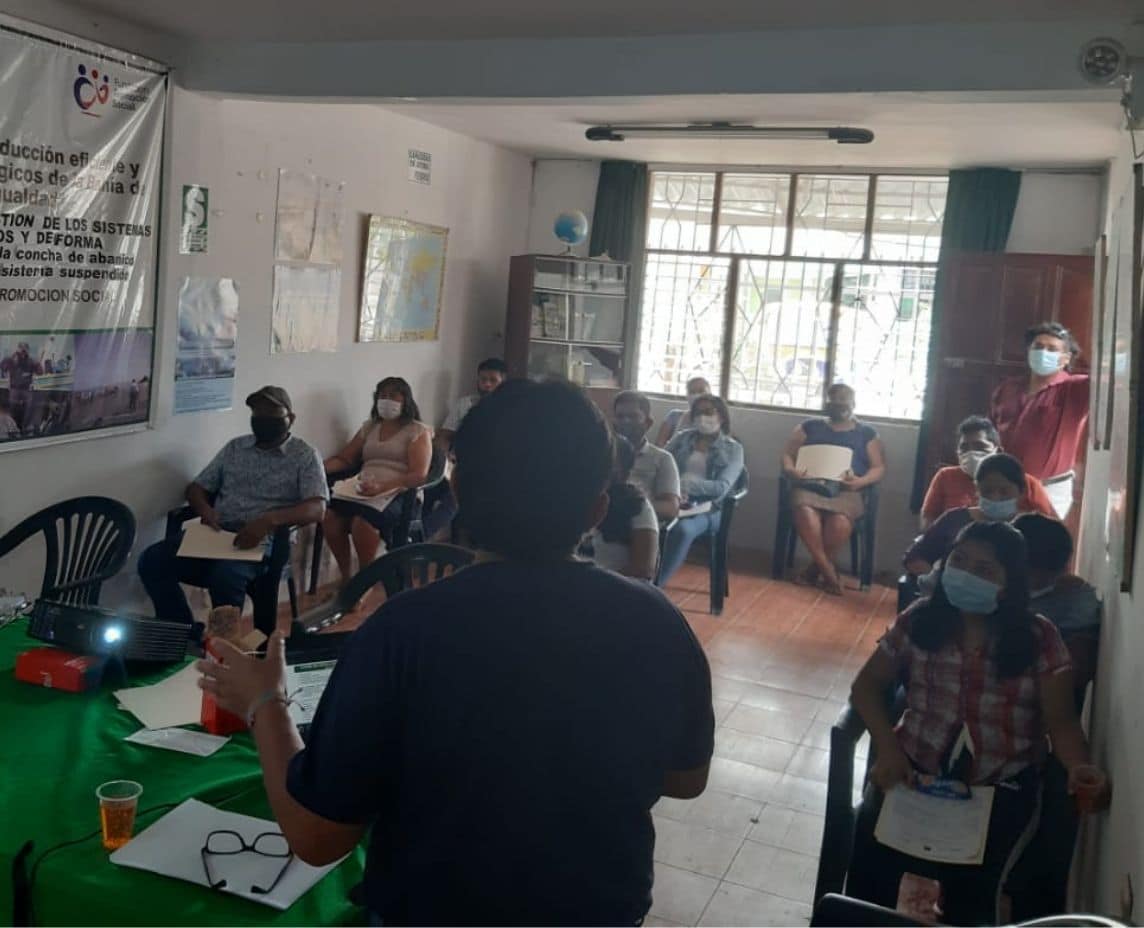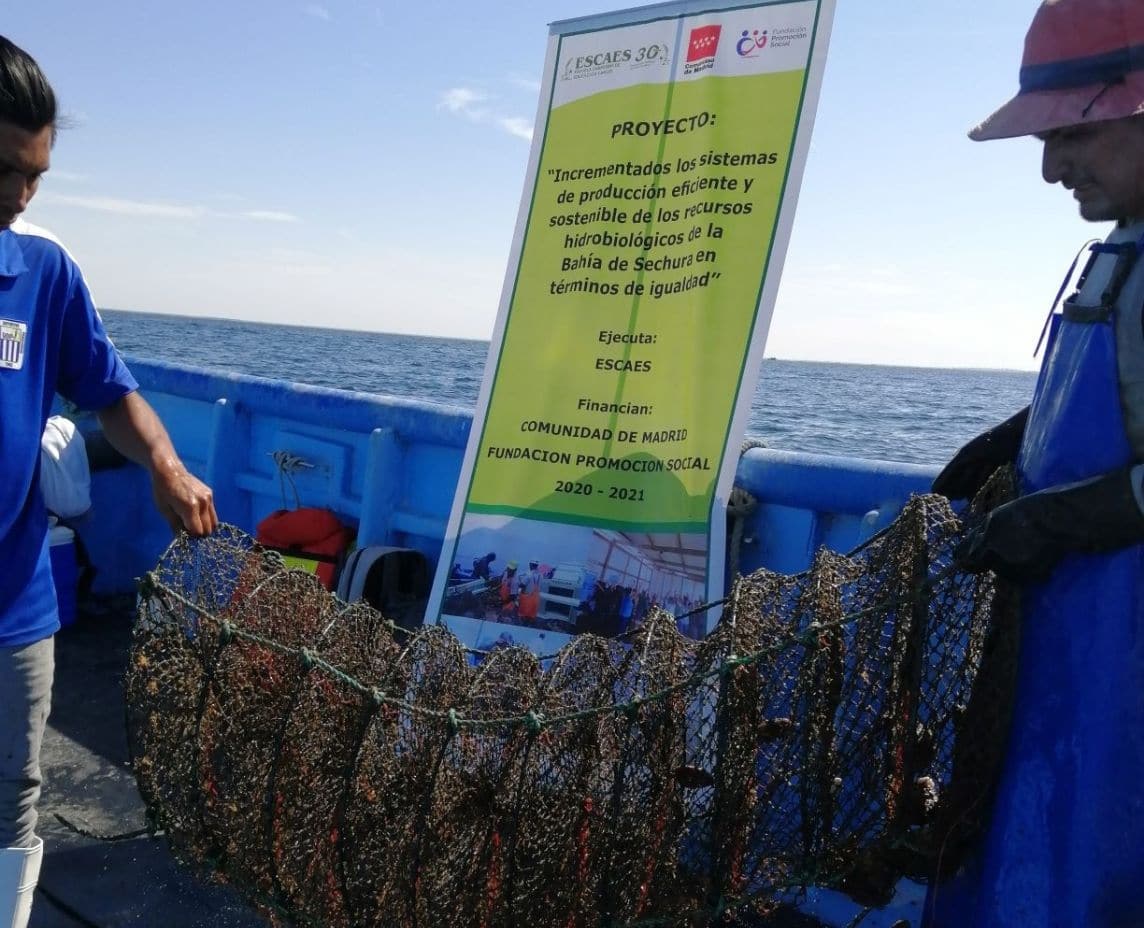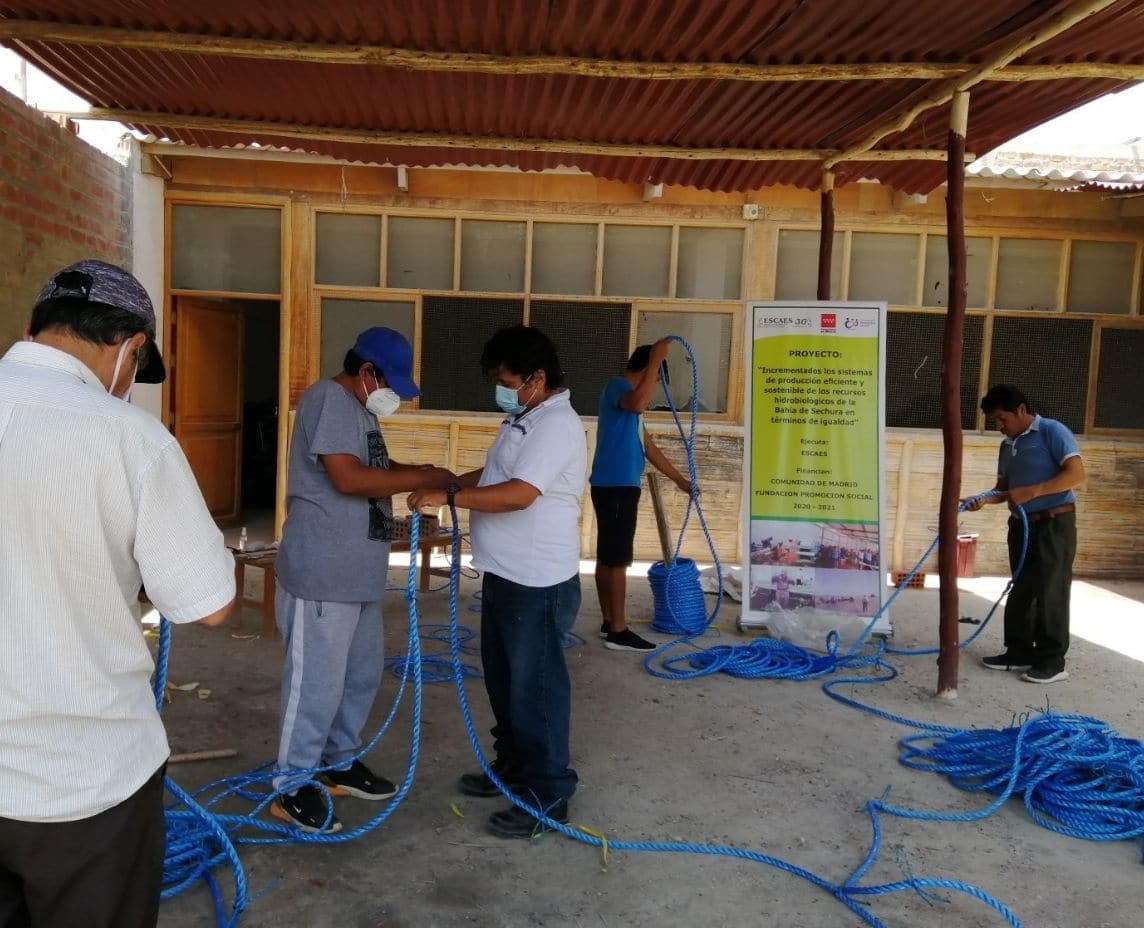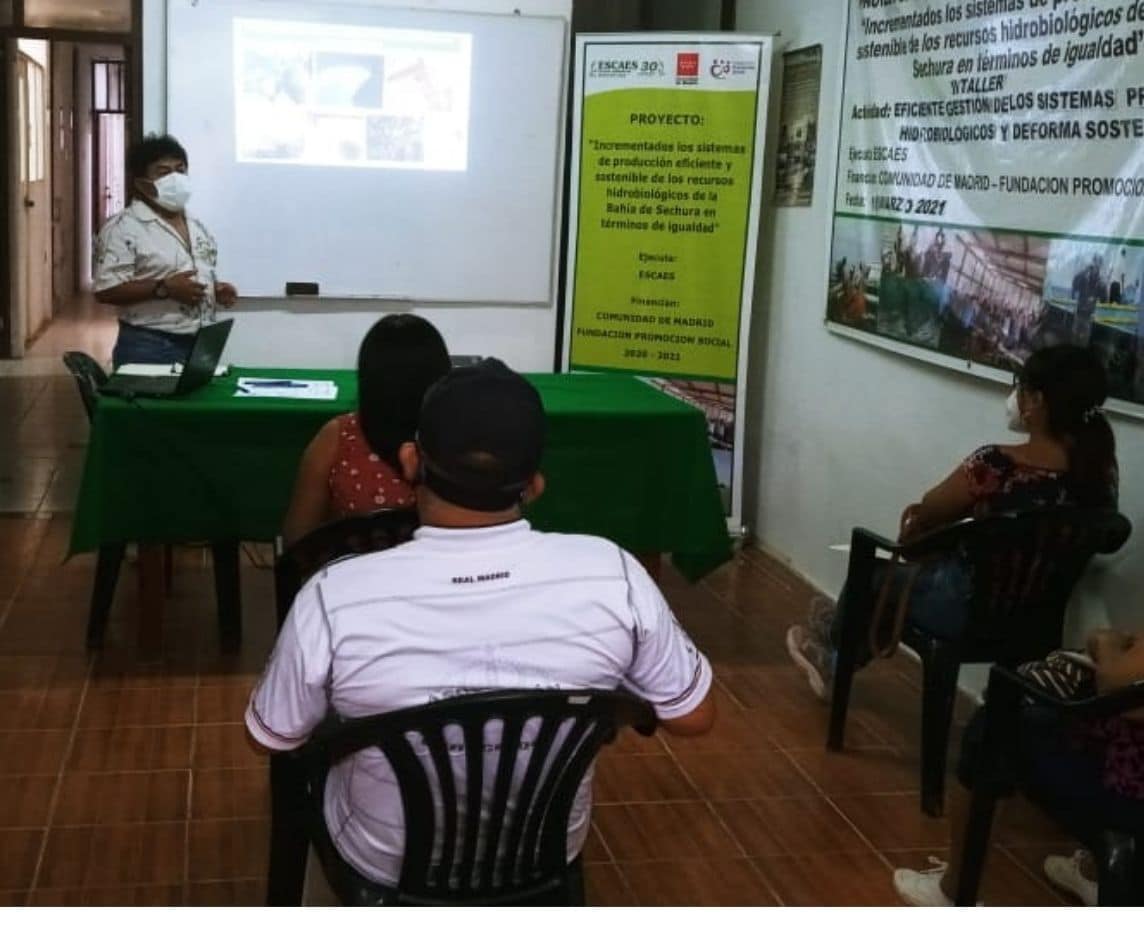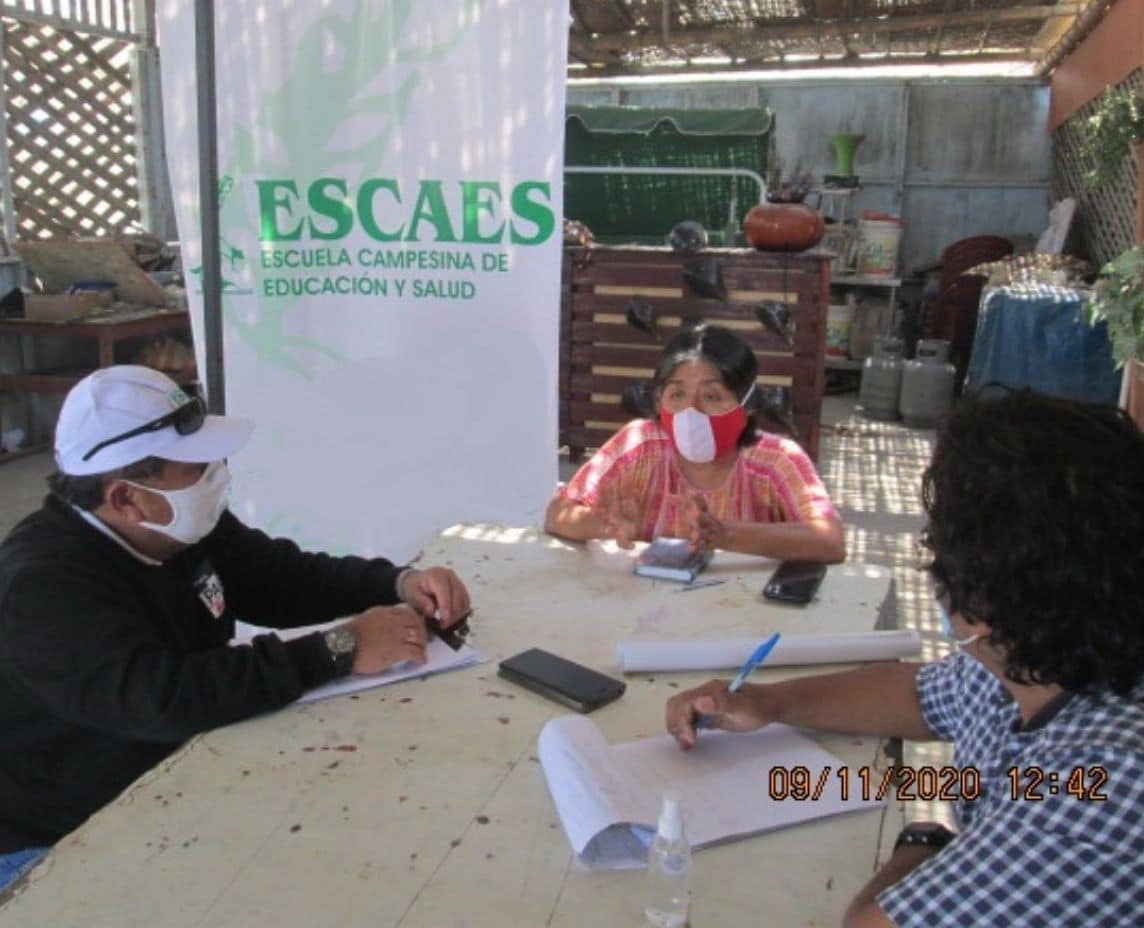The project “Increasing Sechura Bay’s systems of efficient and sustainable production systems of hydrobiological resources in terms of equality” that Social Promotion is implementing in consortium with the Peasant School of Education and Health (ESCAES), financed by the Community of Madrid, has continued its activity with the objective of contributing to the fight against poverty by improving the livelihoods of the population in vulnerable situations.
In addition, this year, the Bay has suffered significantly from the consequences of the COVID-19 crisis, which is why efforts have been multiplied within the framework of the project to design strategies that would guarantee the resumption of the proposed activities at all times.
Thus, on the one hand, market-oriented fish production has been diversified and improved in an efficient manner. To this end, modules of 5 suspended fan shell culture systems have been implemented and installed, which will improve the income of the right holders when the harvesting stage begins, as well as the commercialization of the cultivated product. In addition, a work plan has been drawn up to ensure follow-up and monitoring of the systems installed. Along the same lines of guidance and training, numerous training workshops and awareness-raising sessions have been held. Such is the case of the training program in which 45 women and 45 men from 15 associations of fish farmers and one fishermen’s guild participated to learn how to manage hydrobiological production systems in a sustainable manner.
On the other hand, rights holders have seen their capacities in gender equality and social, political and economic rights enhanced through the elaboration of a Gender Equality Advocacy Plan. In this context, training programs have continued to occupy a priority place among the proposed activities, so that cycles of workshops have been developed for men and women on organization, leadership, values and ethics, as well as on empowerment with a gender perspective. Dialogue and the exchange of experiences have marked the tone of these activities in order to continue strengthening a critical stance among rights holders in the face of discrimination and exclusion of women in society.
Finally, we have achieved the efficient management of solid resources in the domestic sphere and in the coves of the communities in which we operate. To this end, a Network of Ecological Entrepreneurs has been consolidated, with the aim of promoting social and political environmental management, in which equal participation and inclusion take precedence. In addition, the promotion of a healthy environmental awareness and the strengthening of environmental care and protection capacities have been ensured through the implementation of a training program in good practices. The ultimate goal is to ensure that program participants have a multiplier effect on their colleagues in their associations.





